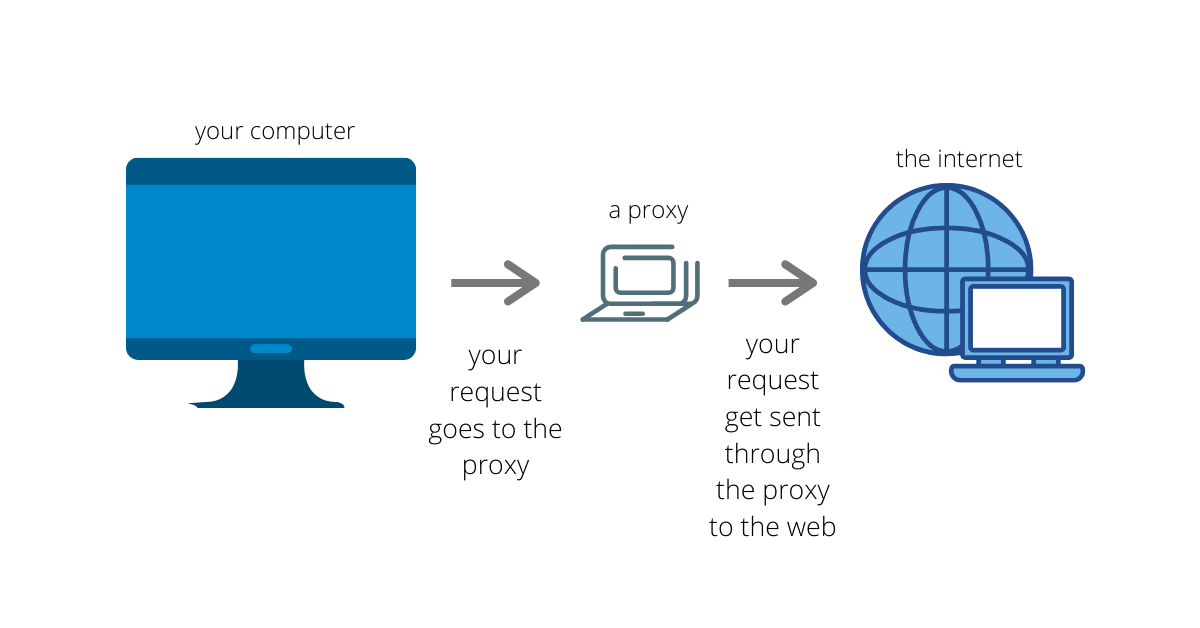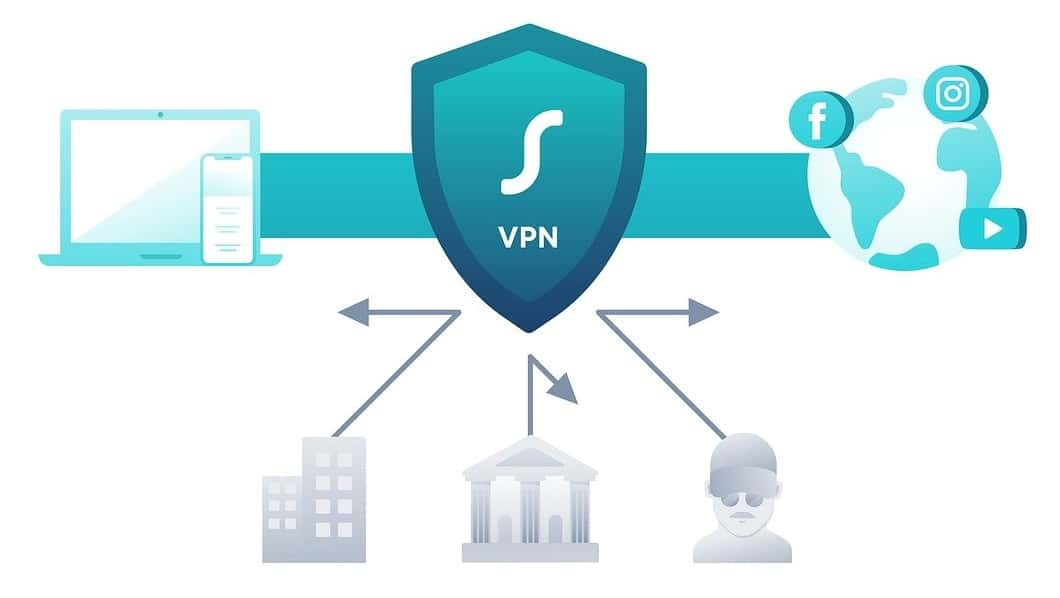VPN vs Proxy: What’s the Difference? explained 2024
VPNs encrypt all of your internet traffic and route it through a secure server, while proxies simply act as intermediaries between your device and the internet.

If you want to secure your privacy, you might be thinking about setting up a proxy server or signing up for a VPN provider so that you can hide your location and internet service provider (ISP) address from any snoops. Well before Moving ahead make sure to know what a Proxy or VPN is and how they are different from each other.
The purpose of using both VPN and proxy servers is to conceal the user’s identity or to spoof a certain geo-location. Many VPN Providers, in addition to offering VPN also provide some kind of proxy service, and there are also many public proxy servers that can be used for free. Unfortunately, the motive of these two are the same but Proxy doesn’t provide any kind of encryption for your online activities; it only helps you to hide your location and mask your IP. While VIRTUAL PRIVATE NETWORK (VPN) will encrypt your data as you browse the web. This helps you to hide your online activity from hackers, government agencies, and companies that might be looking to learn more about how you spend your time suffering on the internet.
What VPNs and Proxy servers are?
So the question for many people is ‘What is the difference between a proxy and VPN?’, and perhaps even more importantly, ‘Do I need to use VPN or will a cheaper / free proxy suit my needs?’.
Although performing a similar motive and function, the actual processes involved are very different like encryption of data and therefore have very different consequences.
What is a proxy server?

A proxy server acts as a gateway between you and the internet. It’s an intermediary server separating end users from the websites they browse. Meaning a proxy (technically an open proxy) server is a computer that acts as an intermediary between your computer and the internet. Any traffic routed through a proxy server will appear to come from its IP address, not your computers. Unlike VPN servers, proxy servers do not have to devote resources to encrypting all traffic that passes through them and therefore can accept simultaneous connections from great many more users.
Proxy servers usually communicate with the internet using one of 2 different protocols; HTTP or SOCKS. The subject is further complicated by the fact that there are a number of different types of proxy services available. Here are some common types of proxies,
HTTP Proxy Servers
The HTTP protocol is designed to interpret traffic at the HTTP level, which means that it can only handle the traffic that starts with http:// or https://, i.e. web pages*. It is therefore only good for web surfing, but because all it is doing is handling HTTP requests, it is faster than either Socks proxies or VPN servers. However, it has its own advantages and disadvantages.
Here are some pros, HTTP Proxy is Cheap (and often free) and Will hide your IP from basic checks, and is therefore ok for accessing some Geo-restricted websites and for account creation. Unfortunately, it can only be useful for accessing websites. Clever use of Flash or JavaScript allows many websites to detect your true IP, HTTP traffic is not encrypted so government surveillance systems and your ISP can see what you are doing. If connected through HTTPS (SSL) then traffic cannot be monitored but the IP of the HTTPS website can be logged. SSL encryption is roughly equivalent to a 128-bit key length. Each web browser must be configured individually to use the proxy server. However, the good news is that this is well-supported by all browsers
SOCKS Proxy
SOCKS servers do not interpret network traffic at all, which makes them much more flexible, but because they are usually handling more traffic, usually slower. The big advantage of the SOCKS protocol is that it supports any kind of internet traffic, such as POP3 and SMTP for emails, IRC chat, FTP for uploading files to websites, and torrent files. The latest iteration of the protocol is SOCKS5. SOCKS can handle any kind of internet traffic. However, it is slower than HTTP Proxy and has the same security issues like HTTP.
- Public Proxy Server
An open proxy is a type of proxy server that is accessible by any Internet user. Because proxy servers can accept so many connections, many public servers have sprung up which allow anyone to use them. Both HTTP and Socks servers are available, lists of which can be found, together with the necessary IP address and Port number from such sites as freeproxylist.org and Hide My Ass.
Unfortunately, public proxy servers tend to be highly unstable, going on and off-line without notice and varying hugely in the speed they offer. In addition to this, you have to trust the owners of these anonymous servers with often quite sensitive information, and there is no support available. On the hand … they’re free!
- Private Proxy Servers
These proxy servers are of course not open to the public and are usually available for a fee. VPN.S for example offers both an HTTP and SOCKS5 service, while BTGuard and TorGuard offer SOCKS5 ‘torrent’ services.
These services tend to be much more reliable, are run by companies with good reputations, and provide comprehensive support. They also often provide customized software – for example, BTGuard and TorGuard offer pre-configured BitTorrent clients.
What Is A VPN?

A VPN OR Virtual Private Network create an encrypted ‘tunnel’ between your computer and the host server, with the internet traffic going in and out of the host server. Your ISP or government can only see that you have connected to the VPN server and nothing else. Your activities, IP addresses you have visited etc. are all completely hidden from them behind a minimum of 128-bit encryption to 2048-bit. VPN connections encrypt and secure all of your network traffic, not just the HTTP or SOCKS calls from your browser like a proxy server. The encryption also protects you from government surveillance, website tracking, and any snoopers or hackers who might try to intercept your device.
There are a number of free and paid VPN service providers available. Paid service providers such as Express VPN, Nord VPN, CyberGhost VPN, and Surf shark offer quality encryption, fast and reliable servers and more. There are also Free VPN service providers such as ProtonVPN, Hide.me, TunnelBear, and Windscribe offer similar services but they may compromise security or sell logs data etc.
Differences between proxy and VPN
So what are the key differences between proxy and VPN?
Data Encryption
The biggest benefit of a VPN over a proxy server, VPNs encrypt your traffic while proxy servers don’t. A VPN (Virtual private network) works a little differently than a proxy. A VPN still routes your internet connection through a remote server. However, the VPN does this through an encrypted connection. They also encrypt all network traffic via software downloaded on your computer. A proxy server can change your IP address through the man in the middle formula so that your actual location can be hidden but can’t encrypt your traffic! Because your information is encrypted in VPN, Third party’s like hackers won’t be able to access your sensitive data.
- Web Surfing Speed
Both VPN and Proxies can slow down your web suffering speed however it depends upon how many users are accessing these services. Proxy servers are traditionally much slower than VPNs. Because proxies require large amounts of bandwidth, load times can be excruciating. While speeds differ greatly from VPN to VPN, in general, they’re faster than proxy servers. A VPN connection is more reliable while proxy server connections drop more frequently.
Online Privacy
Another big difference between VPN and a proxy is online privacy. Many VPN providers offer no log policy to make sure your online privacy will remain safe and secure. Depending on its logging policy, your VPN service could monitor and store your IP address, choice of server location, and even the websites you visit. VPNs that use a strict no-logs policy are very safe to use because they do not store any of your data. This means that no one can view any of your online activities. A no-log VPN means that the virtual private network provider does not collect, or “log,” any information transmitted through the network. On the other hand, a free or cheap proxy may monitor traffic and sell data to third parties.
However, remember to avoid free VPN and web proxy providers. More often than not, they collect and sell your data, making all their privacy and security services just part of their marketing campaigns.
